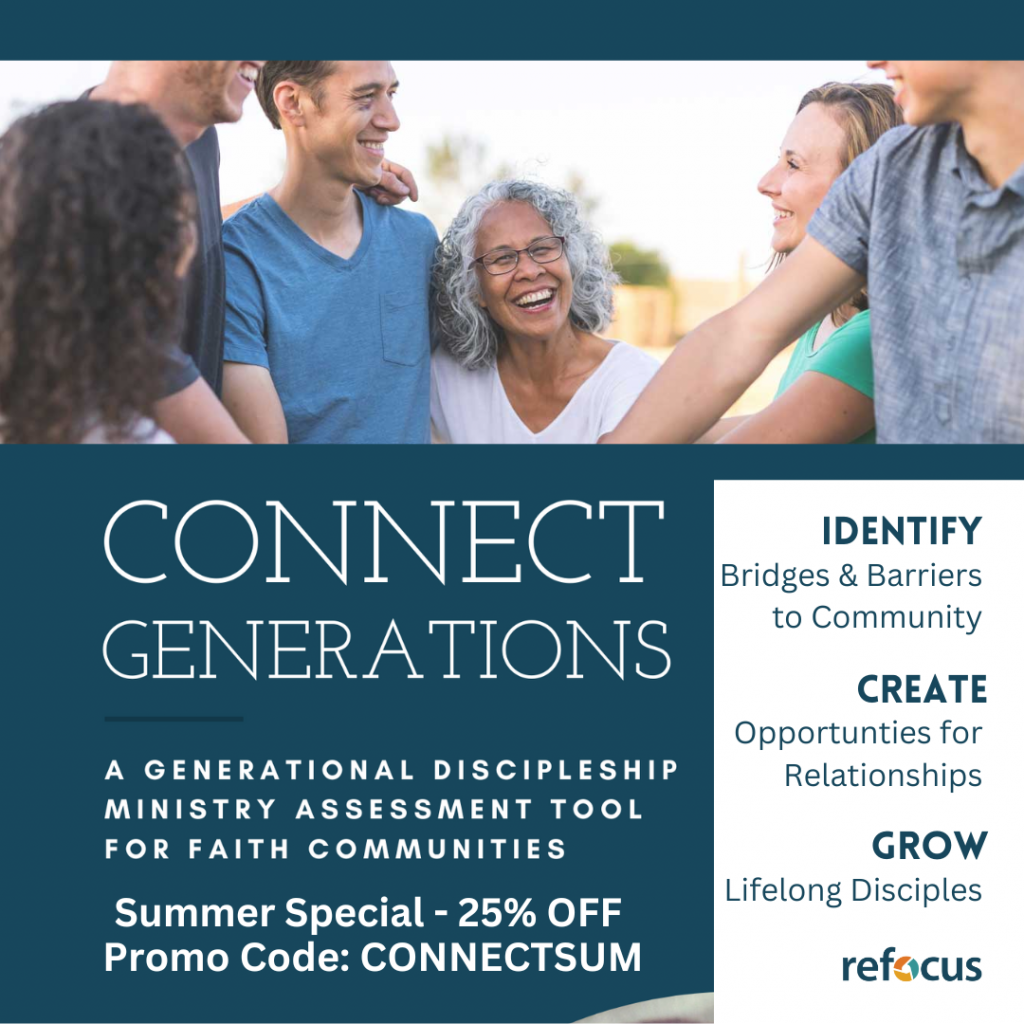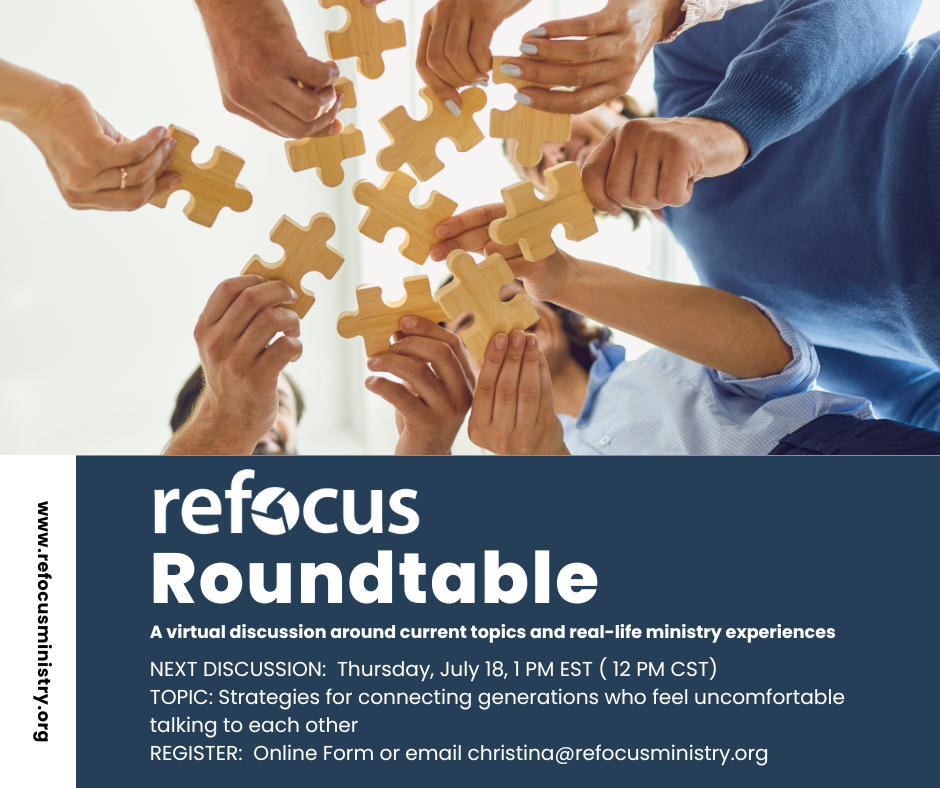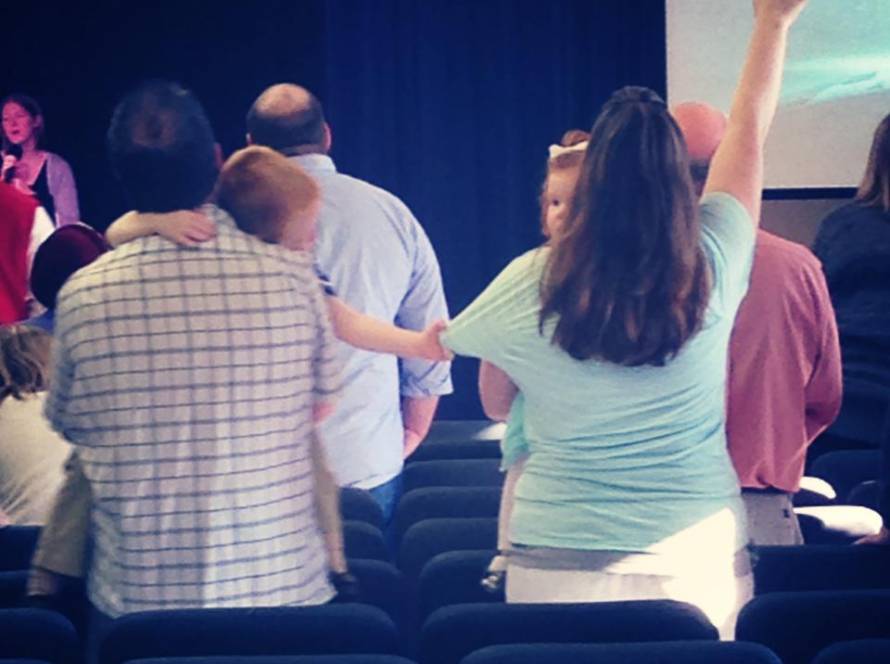“Human beings were made for living in community and it is in community that we flourish and become most fully human.”
Living Into Community: Cultivating Practices that Sustain Us, Dr. Christine Pohl
I love this quote from my friend and mentor. Christine Pohl. She passed away last year on this week and I’ve been thinking about her and her incredible work in the area of community. I think Christine would agree with the that just as we are most fully human when living i community, Christians become most fully Christian for Christ is in the midst of those gathered in His name (Matthew 18:20).
Community is often a stated goal of churches when they define their mission and vision. But community doesn’t just happen because we want it to. Community is something that we must work for because barriers to community are swift to arise. These barriers can be detrimental to the creation and maintenance of the type of community that sustain us both physically and spiritually.
One such barrier that has grown in significance in both society and the church is that of the “generational gap”. The generational gap is defined as “the perceived difference of opinions between one generation and another regarding beliefs, politics, or values.” This perceived difference has had a deep impact on how our society functions and the structures that have been put in place along generational lines.
Research has found that age is becoming more and more of a dividing line in our culture. Everything from architecture to technology can be delineated along age-specific lines. But this division in our community has not been good for us. Studies show that age homogeneity in social networks leads to isolation and loneliness and greatly inhibits socialization in younger individuals and generativity in older individuals. And what is even more alarming is that these trends of generational divide and age segregation can be found in the church. The architecture of our buildings, with separate wings and rooms for specific ages; our services divided into traditional, contemporary and coffee-shop culture; and even our age-specific Sunday School curriculum and Bible studies, all perpetuate the barrier to community along generational lines.
But this is particularly worrisome for churches because our faith is primarily dependent on generational discipleship; the passing of the faith from one generation to another. If intergenerational interactions and community are limited because of the structures described above, how can “One generation commend (God’s) works to another” (Ps 145:4)?
The “Rise” of Intergenerational Ministry
I’ve been living in the world of intergenerational ministry for about a decade. For a long time, I felt pretty alone in my ideas and opinions about all ages worshiping, learning, serving, and growing together. But, ever since 2020, I have seen an increase in research, discussion, and resources related to the importance of connecting generations.
Intergenerational ministry encompasses the whole church, all generations, in a communal and corporate context. Intergenerational ministry is more of a cultural characteristic of a church than it is a ministry area; it is a culture that values and creates space for meaningful connections to be made across generational boundaries in a variety of settings for the purpose of generational discipleship, faith formation, and community building.

In order for a church to recognize the need for connecting generations in building their faith community, the following question must be answered: What does each generation need from the church and what can each generation contribute to the church?
We could spend hours talking about this (and I have!) but let’s just offer these few ideas: The older generations bring a wealth of faithful testimonies, historical worship practices, and community-sustaining disciplines to the church. The middle generations offer a bridge between past experience and current ones through experience with a vast array of communication tools from rotary phones to high-speed internet conferencing and the latest social media trends. The youngest generation offer the heartbeat of current culture and the application of spiritual truths in a dynamic cultural environment.
Likewise, each generation brings its unique needs to the church. The older generations need to be needed; the desire for generativity and legacy-leaving are uniquely found in these generations and to be left isolated from those to whom their legacy can be left (the younger generations) is stifling and leads to stagnation. The middle generations are those seeking intimacy in deeper relationships with others, such as mentorship and discipleship, but if those opportunities are found lacking, will retreat into a placed of isolation. The youngest generations are looking for a placed to be industrious (an important part of the community) and find identity (a role to play in the community); thus faith communities need to be intentional not just with providing safe and fun environments like Kid’s Church and youth group but integral participatory environments that allow for identity and industry to be rooted in the church.
The Practices of Intergenerational Ministry
What are some practical ways that we can connect generations in our church especially if the structures that currently exist are actually impediments to this time of intergenerational connectivity? In other words, how can we take building community from a lofty ideal to a lived-out reality.
Here are a few simple practices that could help aid churches in bridging the “generational gap” by offer space for relationships to begin to flourish.
- Intergenerational Intercessory Prayer – The Pray For Me Campaign is a program for local churches that link children and youth in the church with prayer companions from older generations in an intercessory relationship. Each child/youth has three prayer partners who promise to pray for them for an academic year and they, in turn, pray for their prayer partners. The result of this has shown to be increased relationships not just between the prayer partners and child/youth but across the entire church and between families.
- Kid’s “Worship” Team – Giving children and youth a role to play in the church is vital to their emotional health and allows the larger church community to know them and their name. Since worship encompasses much more than just singing, consider creating a team of children and youth who can worship through hospitality (greeting, handing out bulletins, hold doors), through prayer (praying for the congregation, going to the altar to pray for others), and through giving (collecting the offering, praying over the financial gifts). Some simple training in appropriate behavior and worship can be offered; the blessing to the congregation will be tremendous.
- Community Bulletin Board – Since the church is not a building but the people in it, providing ways for people to connect outside the building is crucial. Consider a community bulletin board where youth sports schedules, ballet recitals, school programs and the like can be posted so the congregation can show up and cheer on their youngest members. Consider hosting events to celebrate retirements, graduations, publications, and anniversaries that are open to the entire church. Create space for connections to be made that don’t naturally happen in a pew.
The idea of connecting generations in meaningful relationships for lifelong discipleship (which is ReFocus’ mission, by the way) is not a new one. In fact, it is a very old one. It is where the church started its “discipleship program” as faith was passed from one generation to another. It is essential to and necessary for the building of community. And it offers us the best chance to become fully human with one another as we follow Jesus together.
ReFocus Roundtable: Connecting Generations in Discussion Together
July 18, 2024 from 1 pm to 2pm, EST (12 pm CST)
The benefits of intergenerational relationships on both young and old have been enumerated by researchers and ministers alike but in many circles, there is resistance especially from adults. Many adults express that they feel uncomfortable engaging with younger generations. Offering the reticent a few tools for positive interactions can lead to opportunities that lead to meaningful relationships and lifelong discipleship.
We invite you to join us for this interactive conversation as our shared voices will help us all to connect generations in meaningful relationships for lifelong discipleship.
It’s Time To Connect

Connect Generations Coaching is a one-time intensive coaching experience that uses a research-based ministry assessment tool designed for churches to complete in less than a week.
This unique coaching experience offers specific insight into the barriers and bridges to connect generations and bring your community together. The Connect Generations Ministry Assessment Tool & Coaching Experience are available now for only $99.
About the Founder of ReFocus Ministry
Christina Embree is the founder and director of ReFocus Ministry. She holds a masters in ministry focused on Children, Youth, and Family Ministry and a doctorate in spiritual formation with a focus on age segregation and intergenerational ministry.
In addition to coaching churches of multiple denominations and traditions all around the globe, Christina serves as the Minister of Generational Discipleship for the Great Lakes Conference of the Brethren in Christ and as Next Gen pastor at Open Door Church in Lexington, Kentucky.
She is widely recognized as a speaker and author in the areas of generational discipleship, intergenerational ministry, and family ministry. As the mother of three children, she is familiar with the challenges of faith at home and pastoral ministry. She along with her husband Luke share a love for the church, their community, and the global work of peace and restoration through Jesus.
Interested in having Christina visit your church, speak at your conference, or coach your team?
Christina speaks on a wide range of topics related to children, youth, and family ministry with a unique focus on connecting generations for discipleship within your church. Her personalized approach allows you to pinpoint the needs of your community and gain the insight that you are looking for. Whether this is a volunteer team training and pastoral staff meeting or a ministerial conference, her experience and knowledge will help you determine the next step forward in creating lifelong disciples.



